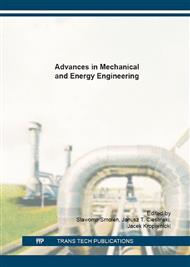p.3
p.14
p.25
p.33
p.44
p.54
p.63
p.71
AQUASONIC – A Sounding Rocket Based on Hybrid Propulsion
Abstract:
The AQUASONIC project is aimed to develop a sounding rocket including a hybrid propulsion system based on the propellant combination nitrous oxide and polyethylene. It takes place in the frame of the STERN (Student Experimental Rockets) programme founded by the German Space Agency (DLR) in order to promote students in the area of launch vehicles. Main element of the project is the AQUASONIC rocket, which shall reach a flight altitude of 5-6 km and a velocity of MACH 1. All major activities like design, manufacturing, verification and, finally, the launch campaign will be performed by students. The rocket shall be launched at Esrange Space Centre (Sweden) in 2016. Thus, students are able to apply their skills and knowledge to a real project like it is conducted by the space industry or research organisations.
Info:
Periodical:
Pages:
3-13
DOI:
Citation:
Online since:
April 2016
Authors:
Keywords:
Price:
Сopyright:
© 2016 Trans Tech Publications Ltd. All Rights Reserved
Share:
Citation:


